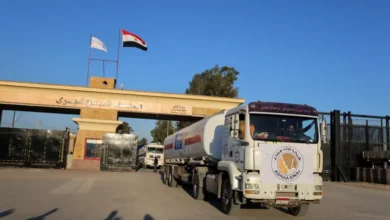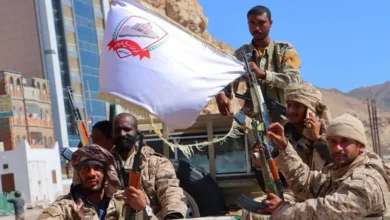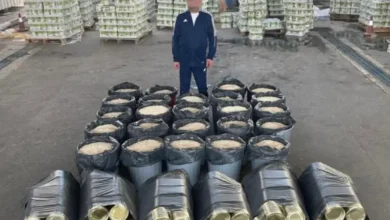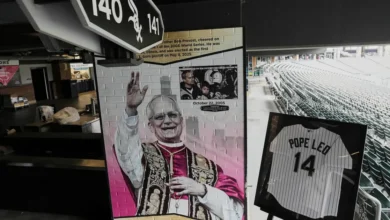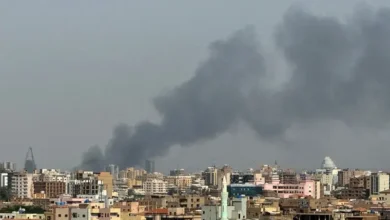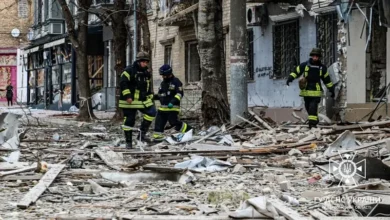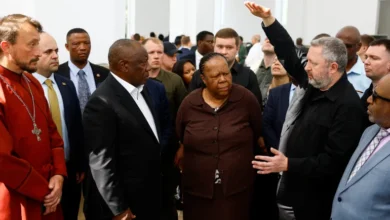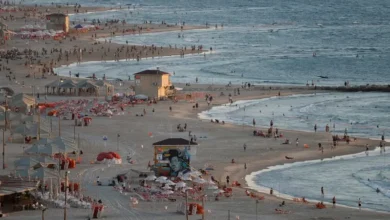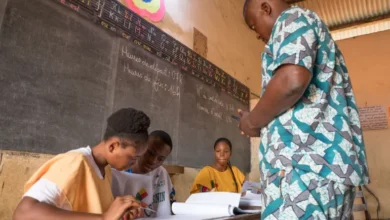Israel’s war on Gaza live: Eight relatives among 25 Palestinians killed
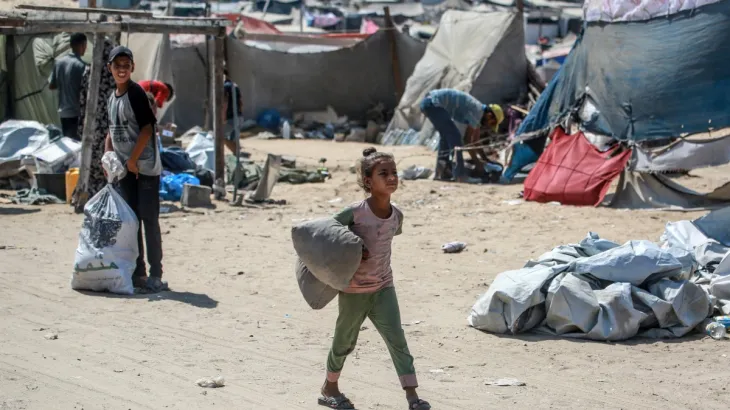
- The Israeli bombardment of the Gaza Strip over the past 24 hours killed at least 25 Palestinians, including eight members of the same family in Deir el-Balah, according to Gaza’s Health Ministry.
- Hamas official Osama Hamdan told Al Jazeera that Israeli Prime Minister Benjamin Netanyahu remains the main obstacle to a ceasefire and captive exchange deal as Israeli negotiators expressed “cautious optimism” after two days of truce talks in Qatar.
WATCH: Hamas official says Netanyahu main obstacle to achieving ceasefire
Osama Hamdan has told Al Jazeera that “everyone understands” Netanyahu and his government are not willing to reach a ceasefire deal.
“The Israelis, in the two-day negotiations, rejected the paper, introduced by the Americans on June 24 based on Biden’s initiative, the Security Council resolution, and also responsible for the Israeli points,” the Hamas official said.
Hamdan added that the Israelis declared in the latest round of talks in Qatar that they wanted the right to come back to fight, a condition he said was unacceptable for Palestinians.
If you’re just joining us
Here’s a quick look at what’s happened so far today:
- Israeli military attacks continue to kill Palestinians in the Gaza Strip, including seven in the Nuseirat refugee camp located in the centre of the enclave.
- Thousands of Palestinians are on the run, including from the so-called “humanitarian zone” in Maghazi, as Israeli evacuation orders further shrink Gaza.
- Kamal Adwan Hospital in northern Gaza said the facility will stop working within 24 hours in absence of fuel and medicine, while the Kuwaiti Hospital in Rafah said it has been forced to stop surgeries.
- The Palestinian Civil Defence in Gaza reported that at least 10,000 are buried under rubble, along with about 1,760 presumed dead whose bodies “disintegrated” due to the use of high-intensity weapons.
- Three peacekeepers were injured in southern Lebanon after an “explosion” near their UN vehicle, according to UNIFIL. Lebanese media blamed an Israeli air attack.
- US Secretary of State Antony Blinken is expected to arrive in Israel as negotiators discuss a Gaza ceasefire deal in the Egyptian capital Cairo.
Smotrich, Ben-Gvir supervised forced displacement of 40 Bedouin communities: Ministry
The Palestinian Foreign Ministry has expressed “great concern” for the forced displacement of the Bedouin communities throughout the occupied Palestinian territory, especially in Masafer Yatta and the Jordan Valley in the West Bank.
It said in a statement that the attacks by the Israeli settlers against the communities come with the support and protection of the army and the direct supervision of Israel’s Finance Minister Bezalel Smotrich and National Security Minister Itamar Ben-Gvir.
The latest displacement of the last Palestinian Bedouin family came in Umm al-Jamal in the northern Jordan Valley, bringing the number of forcibly displaced Bedouin communities to 40, the ministry said.
“The Ministry considers this crime to be a crime of ethnic cleansing, and falls within the framework of the ongoing gradual annexation of the occupied West Bank and emptying it of its inhabitants and original owners,” it added.
The ministry stressed that the deterrent international sanctions must include “not only the extremist settlers and their armed militias, but also the ministers and officials in the Israeli government who provide protection, support, funding and backing, such as Smotrich and Ben-Gvir”.
What is UNIFIL?
We just reported the United Nations Interim Force in Lebanon (UNIFIL) saying three of its members have been injured in a blast in southern Lebanon.
Here are some quick facts about the force:
- UNIFIL, as well as unarmed technical observers known as UNTSO, has long been stationed in southern Lebanon to monitor hostilities along the demarcation line between Lebanon and Israel, known as the Blue Line.
- Its roughly 10,000 peacekeepers are tasked with monitoring the ceasefire between Hezbollah and Israel.
- UNIFIL was set up in 1978 to monitor the withdrawal of Israeli forces after they invaded Lebanon in reprisal for a Palestinian attack.
- Israel continued to occupy territory in southern Lebanon until 2000 when it announced a withdrawal.
- While the withdrawal was certified by the UN, Lebanon disputed it, arguing that the Shebaa Farms was part of its territory and not part of the Syrian Golan Heights, which Israel continues to occupy.
- The UNIFIL force expanded after the war between Hezbollah and Israel in 2006.
- The monthlong war ended with UN Security Council Resolution 1701, which demanded that both sides respect the border and that “all armed groups in Lebanon” be disarmed.
UNIFIL says 3 members injured in blast in south Lebanon
We are receiving updates on the reports of an explosion near members of a UN peacekeeping mission in Lebanon.
The UNIFIL has confirmed the incident, saying three peacekeepers on patrol were “lightly injured” when a blast occurred near their clearly marked UN vehicle in the village of Yarin in southern Lebanon.
“All peacekeepers in the patrol returned safely to their base,” UNIFIL spokesman Andrea Tenenti said, giving no further details on the nature of the incident.
“We are looking into the incident. We are strongly reminding all parties and actors of their responsibility to avoid harm to peacekeepers and civilians,” he added.
Lebanese media previously reported that a member of the UNIFIL force was injured after an Israeli attack in the Tyre district in southern Lebanon.
There is no more space in Gaza to shelter in: UNRWA
The UN agency for Palestinian refugees has repeated its call for a ceasefire in Gaza.
In a post on X, it said families have been forced to flee Maghazi after the Israeli authorities issued a new evacuation order on Saturday.
“Thousands of people in Gaza continue to face displacement with nowhere safe to go. There is no more space for them to shelter in. Gaza needs a ceasefire now,” it said.
Woman killed, many wounded in Khan Younis attack
A Palestinian woman has been killed and several others injured after Israeli forces opened fire in the northwest of Khan Younis in southern Gaza earlier this morning, according to Wafa.
The news agency quoted witnesses as saying military vehicles fired at civilians in the vicinity of Hamad City, a housing complex that has been repeatedly besieged since the start of the war.
WATCH: Palestinians endure in unsafe designated areas
The area shown in the video is part of al-Mawasi in southern Gaza’s Khan Younis, where many Palestinians are forced to survive in tents in dire conditions amid expanding Israeli military evacuation orders.
Rafah’s Kuwaiti Hospital stops surgeries due to lack of doctors, supplies
Suhaib al-Hams, director of the Kuwaiti Hospital in Gaza’s Rafah city, has said a shortage of doctors, medicines and fuel has forced the facility to stop performing surgeries.
“We are witnessing the collapse of the health system and an inability to care for patients and the increasing number of injuries due to the bombing,” he was quoted as saying by the Palestinian Information Center.
More from civil defence in Gaza
The Palestinian Civil Defence in Gaza, which has renewed its call to international organisations to deliver more humanitarian aid, has more reporting from the besieged enclave:
- 82 civil defence responders have been killed and 270 wounded since October 7. That means 40 percent of crews have been subjected to physical harm, in addition to all losing relatives or homes.
- Civil defence headquarters were completely levelled, with 12 administrative vehicles, 11 fire engines, eight ambulances, three rescue and rapid intervention vehicles and four water tankers also destroyed.
- The Israeli military prevented the retrieval of 7,552 injured Palestinians across Gaza.
- Nearly 85,000 explosives were dropped over Gaza – with 17 percent remaining unexploded – leading to the destruction of 80 percent of total urban infrastructure.
- Over 90 children have been killed so far after handling explosives that were placed inside cans of food.
- Over 72,000 distress calls were answered, but some 15,000 could not be responded to by civil defence crews due to chronic fuel shortages.
